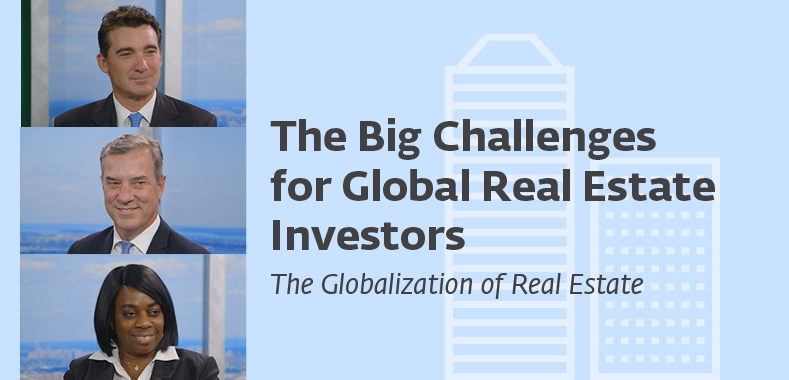Real Estate in Europe: Managing the Headwinds and Crosswinds
Ric Lewis, Chief Executive Officer and Chairman of London-based private equity real estate firm Tristan Capital Partners, provides his view on European investing.
Privcap: Ric, what conversations are you having with investors that illustrate their current approach to real estate?

Tristan Capital Partners
Ric Lewis: Investors are talking about these being uncertain times. They want to know how we make sense of it. We have always said that uncertainty brings opportunity. But it is a strange period—investors have a near insatiable appetite for yield and duration. So, the conversation is about how we can help them reliably meet their obligations when they cannot achieve the requisite yield from equities or fixed income. Real estate is an asset class that provides investors with features that are valuable in their portfolio.
Privcap: Broadly, what challenges does Europe present to an investor seeking yield and duration?
Lewis: The challenge is how to scale up given the headwinds that exist. In some places, the cycles are advancing at the pace or slightly ahead of demographics, and I’m concerned about pricing.
Privcap: How can Europe be described as real estate investment market today?
Lewis: As I look across the European market place in different asset classes, it is a hodgepodge. But at Tristan, that’s what we do. We manage the two-way traffic and the friction that exists in Europe at any given time. Sometimes, the wind is slightly at our sails and that feels great. But, the truth is, over the last 20 years that I’ve been doing it, the periods where the wind was squarely at our back and helping us are the minority. The reality is that there are good pieces of Europe that are still growing, albeit slowly, albeit checked. But the demographics have been improving.
Privcap: What particular market fundamentals are encouraging today?
Lewis: Across Europe, I look at tenant demand and what’s happening at the property level. That story is a good story, in a place that has constrained new supply for a long time. It’s not a bad condition to be out there and doing things, if you pick your spots.
Privcap: You said a couple of years ago that pricing was ahead of fundamentals. How do you see pricing, particularly for cross-border investors?
Lewis: There are places in Europe that feel full or fairly priced, and where it is harder to pick your spots. I think if you’re talking about the German marketplace, you see the run up there. We are still active in Germany and we’re going to do more there. But we have to be increasingly picky. It may be ahead of the demographic fundamentals, although there’s been rising rents. It’s a healthy economy, but it’s not ahead of the capital market fundamentals if you look at what bonds are yielding.
The question we ask ourselves is whether we want to invest in something in Germany in a relatively healthy market at a very significant price, or would we rather buy something in the Dutch market, which is fundamentally the same thing, has healthy tenant demand and is growing off a different price point? We are not just looking at the deal in an absolute sense. We are always looking at it in a relative sense. It’s about relative value versus the other options for us to thoughtfully diversify the portfolio across the European marketplace.
Privcap: Because interest rates are so low, is there a false sense of security? What happens when rates start rising?
Lewis: Unlike fixed-income instruments that have a terminal value and will pay you back some factor of par at the end of your holding period, real estate has no bottom. So, if you’re not looking at what your income yield is, with little regard for what the residual is, then you’ve missed the game. I would argue that some people are making mistakes by buying something that they later realize does not have a constant yield. And they run into a problem because to preserve that yield, they need capital expenditure that they didn’t budget for. That’s when we come in.
Privcap: It seems that many investors have soured on retail. What’s your take?
Lewis: We are doing some things where we feel the institutional appetite might be temporarily impaired, which has changed pricing. So, you see us moving into some things because retail is out of favor in a way that’s inconsistent with the pricing continuum we see in the country, in the asset type, and across Europe. We’re not going to share all our points of view, but one thing I’ll mention is that when we talk to our operating partners, and we talk to retail tenants, what we find is that click and collect is having a less dramatic effect on retail parks and logistics than everyone at present fears.
The headlines seem to be different there, but what I’ve seen across some parts of the portfolio is that shopping centers are offering incentives to change the customer desire path by offering them the chance to come to the shopping center and click and collect, and offering various incentives. In retail parks or logistics centers, owners don’t have to offer those incentives. It is changing things, but it’s not changing it as rapidly as the headlines always suggest.
Privcap: Can you give a sense of how you plan for downside?
Lewis: We talk a lot about the “bones” of a deal and how it might perform in adverse market conditions. To some extent, it’s theoretical. But it’s about asking ourselves, “If we are wrong, how do we live with our wrong? What do we do? How proactive do we need to be? What parts are going to be weak? Is our partner going to survive if there’s no economics? Can we step in and do this? What are our alternatives? How do we sell it? Can we refinance it?” No truly experienced investor can avoid making an error. The real test is how well you live with that and learn from it and how well you have built your portfolio. We never plan to make a mistake, but we always plan to have built a strong, well-diversified portfolio that is resilient to making one.
Ric Lewis of Tristan Capital Partners on the risks and opportunities involved in European investing.











